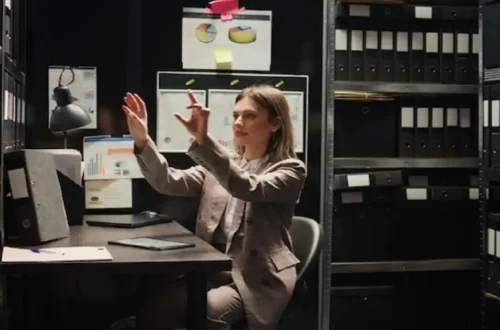The proliferation of royalty-free music has caused a sea change in the dynamic digital music industry, altering the processes of making, sharing, and listening to music. This transformation has not only democratized music production but also redefined the relationship between creators and consumers. Royalty-free music, by its very nature, offers a license that allows buyers to pay once and use the music multiple times without incurring additional fees. This model has revolutionized the digital music industry, offering a plethora of opportunities for creators, businesses, and consumers alike.
Democratization Of Music Production
The democratization of music production is one of the most significant benefits of royalty-free music. In the past, a lot of money had to be spent on equipment, studio space, and music licensing costs just to make a soundtrack that sounded professional. Royalty-free music has leveled the playing field, allowing independent filmmakers, podcasters, YouTubers, and small businesses to access high-quality music at an affordable price. This accessibility has spurred a wave of creativity, enabling more individuals to produce content that can compete with larger productions in terms of quality.
Enhanced Creative Freedom
Royalty-free music libraries such as MelodyLoops offer a vast array of genres, moods, and styles, providing creators with the flexibility to find the perfect soundtrack for their projects. This variety enhances creative freedom, allowing content creators to experiment with different sounds and moods without the constraints of traditional licensing costs. Creatives may now realize their visions with the help of royalty-free music, whether it’s a film soundtrack for a short film, energetic tunes for a marketing campaign, or background music for a meditation app.
Streamlining Content Production
The digital age demands speed and efficiency in content production, and royalty-free music has been instrumental in streamlining this process. With quick access to a vast variety of music, creators can quickly select and integrate music into their projects, significantly reducing production timelines. This efficiency is crucial in a world where the ability to produce high-quality content quickly can be a significant competitive advantage.
Changing Business Models
The popularity of royalty-free music has also prompted a shift in the business models of music providers. Traditional licensing models, with their complex fee structures and usage limitations, are being challenged by the simplicity and transparency of royalty-free licenses. This shift has led to a rise in competition among music providers, resulting in better quality music, more flexible licensing options, and more competitive pricing. For the music industry, this means adapting to new revenue models that prioritize accessibility and user-friendliness.
Global Reach And Accessibility
Royalty-free music has a global reach, breaking down geographical and financial barriers that once limited access to quality music. Creators from all over the world can now access the same high-quality music libraries, fostering a more inclusive and diverse creative community. This global accessibility also means that music from different cultures and regions can be easily integrated into projects, enriching the cultural diversity of content available online.
Impact On Musicians And Composers
For musicians and composers, royalty-free music has opened up new avenues for revenue and exposure. By contributing to royalty-free music libraries, artists can reach a wider audience, increase their visibility, and generate income in a way that is not solely reliant on traditional music sales or streaming royalties. This model also encourages collaboration and experimentation, allowing artists to explore various genres and styles without the constraints of market demands.
Challenges And Considerations
Despite its many benefits, the royalty-free music model is not without its challenges. Issues such as oversaturation, quality control, and the potential for misuse of licenses require careful consideration. Moreover, the debate over the value of music in a world of unlimited access highlights the need for a balance between accessibility and fair compensation for creators.
Conclusion
Royalty-Free Music has indisputably changed the world of digital music, changing how music is shared, produced, and experienced. In democratizing music access, increasing creative freedom, and creating a more inclusive community, royalty-free music has become an important part of the digital creative world. In a digital age that continues to grow, royalty-free content is a key component of the future. The industry must continue to innovate, while also ensuring the value and rights of the creators of music are protected in the digital age.





